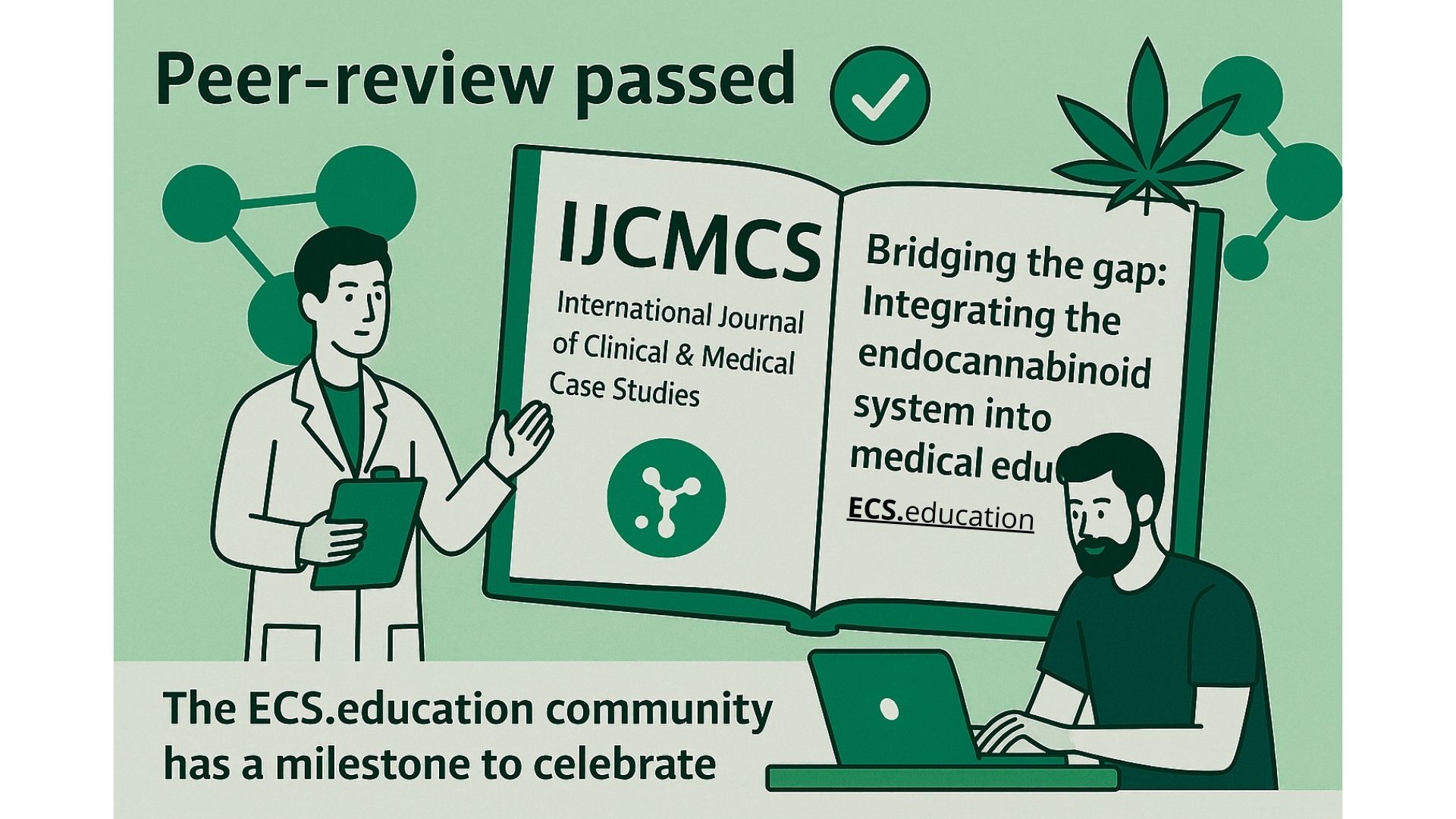The ECS.education community has a milestone to celebrate: our manuscript, “Bridging the gap: Integrating the endocannabinoid system into medical education,” has passed independent, double‑blind peer review and is now published in the International Journal of Clinical & Medical Case Studies (IJCMCS). Built around three cornerstone ECS.education analyses, the paper consolidates evidence that the endocannabinoid system (ECS) is highly influential in biomedicine yet strikingly absent from mainstream medical training—an omission with clear clinical consequences.
Why peer review matters for ECS education
Peer review functions as an external quality filter; IJCMCS details its peer-review policy, underscoring the rigor behind accepted articles and why clinicians and educators use it as a trust signal for implementation decisions.
From preprint to publication at IJCMCS
The article was first shared openly to invite community dialogue; it has now cleared journal review and is formally published by IJCMCS, a peer‑reviewed outlet for clinical analyses and case‑led commentary, reinforcing its translational value for educators and practitioners.
Built on ECS.education scholarship: three cornerstone analyses
The manuscript synthesizes and extends three flagship posts:
- Is the ECS influential? A bibliometric analysis of ECS impact showing the ECS’ outsized impact relative to its curricular footprint.
- Medical textbooks ignore the ECS: a textbook audit of ECS coverage, documenting the persistent omission in major physiology textbooks despite decades of ECS research.
- Global analysis of healthcare professionals’ ECS knowledge: summarizing multicountry surveys revealing global training gaps and wide clinical uncertainty.
Read the open‑access article
The paper urges curriculum reform, textbook updates, CME modules, and assessment standards that explicitly include ECS content—pragmatic steps aligned with ECS.education’s mission to modernize medical education.
Read the article (open access): “Bridging the gap: Integrating the endocannabinoid system into medical education” (IJCMCS, 2025).

